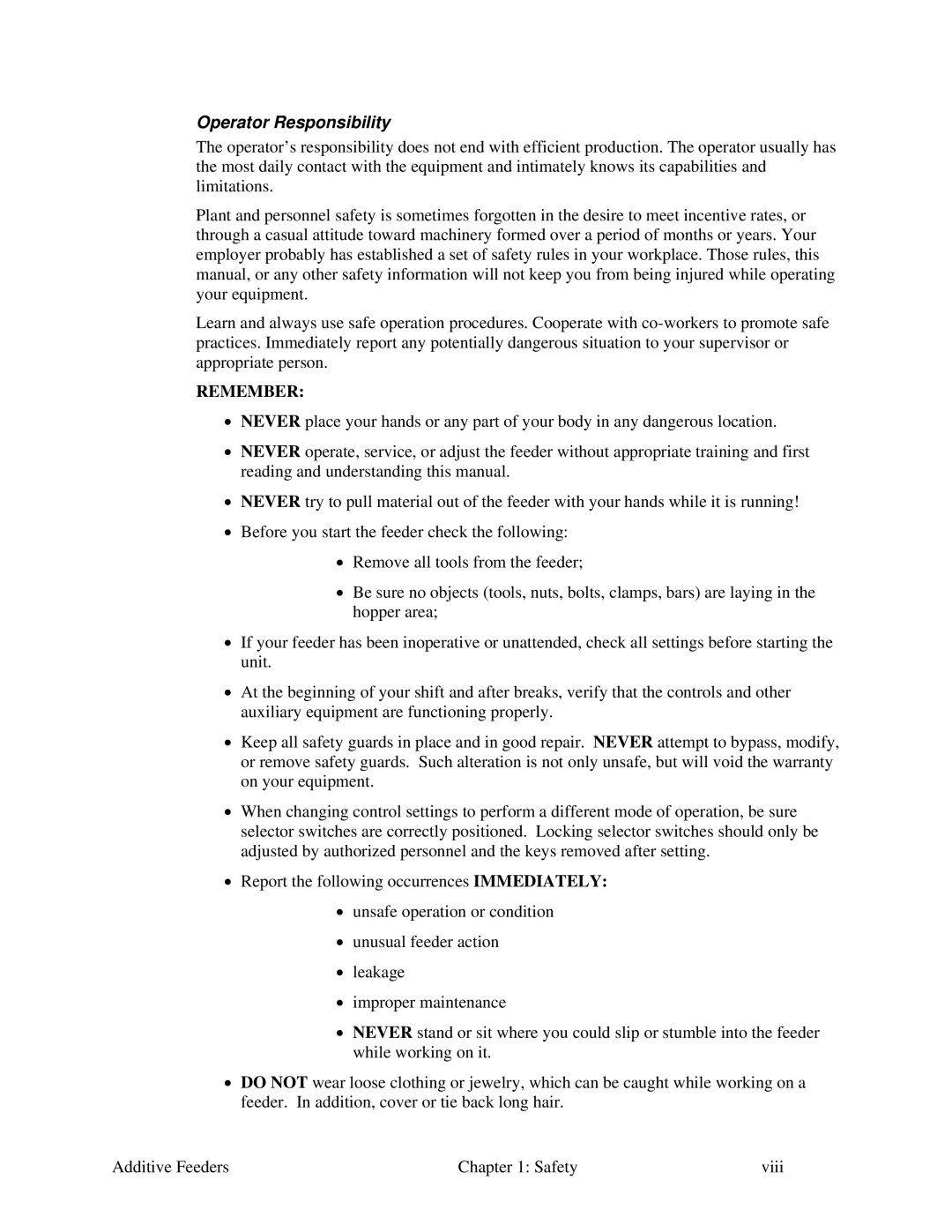Operator Responsibility
The operator’s responsibility does not end with efficient production. The operator usually has the most daily contact with the equipment and intimately knows its capabilities and limitations.
Plant and personnel safety is sometimes forgotten in the desire to meet incentive rates, or through a casual attitude toward machinery formed over a period of months or years. Your employer probably has established a set of safety rules in your workplace. Those rules, this manual, or any other safety information will not keep you from being injured while operating your equipment.
Learn and always use safe operation procedures. Cooperate with
REMEMBER:
•NEVER place your hands or any part of your body in any dangerous location.
•NEVER operate, service, or adjust the feeder without appropriate training and first reading and understanding this manual.
•NEVER try to pull material out of the feeder with your hands while it is running!
•Before you start the feeder check the following:
•Remove all tools from the feeder;
•Be sure no objects (tools, nuts, bolts, clamps, bars) are laying in the hopper area;
•If your feeder has been inoperative or unattended, check all settings before starting the unit.
•At the beginning of your shift and after breaks, verify that the controls and other auxiliary equipment are functioning properly.
•Keep all safety guards in place and in good repair. NEVER attempt to bypass, modify, or remove safety guards. Such alteration is not only unsafe, but will void the warranty on your equipment.
•When changing control settings to perform a different mode of operation, be sure selector switches are correctly positioned. Locking selector switches should only be adjusted by authorized personnel and the keys removed after setting.
•Report the following occurrences IMMEDIATELY:
•unsafe operation or condition
•unusual feeder action
•leakage
•improper maintenance
•NEVER stand or sit where you could slip or stumble into the feeder while working on it.
•DO NOT wear loose clothing or jewelry, which can be caught while working on a feeder. In addition, cover or tie back long hair.
Additive Feeders | Chapter 1: Safety | viii |
